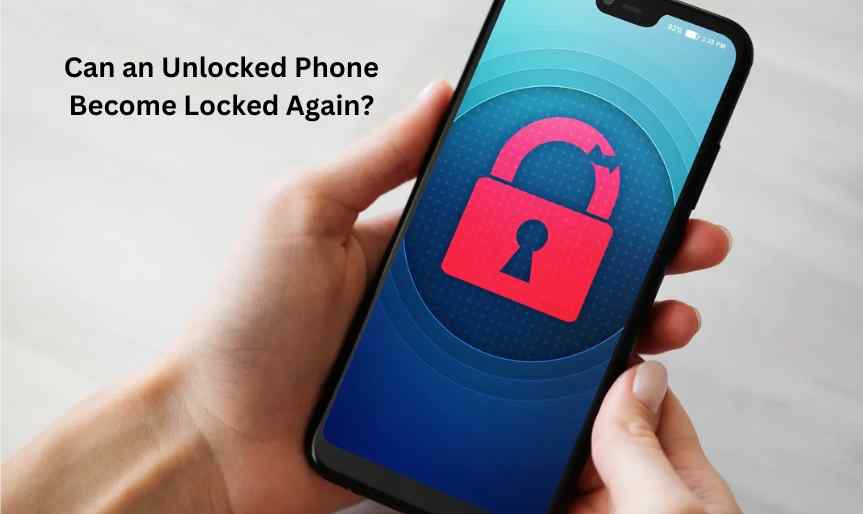Let’s stroll through the labyrinth of tech mysteries, my fellow tech enthusiasts. One question often bubbles up in the corners of tech forums and coffee shop debates – “Can an unlocked phone ever become locked again?”
It’s like a riddle wrapped in an enigma, isn’t it? But don’t worry, we’re not leaving any stone unturned. Stick with me, and we’ll navigate this problem, shedding light on whether our precious liberated devices can return to their locked state.
In a hurry? We care about your time, so here’s a quick answer to the question you’re looking for!
Typically, an unlocked phone should remain unlocked, allowing you to use it with any carrier. However, some system updates might inadvertently relock the device, though this is rare. If this happens, reaching out to the original unlocking service or your carrier should resolve the issue effectively.
Do Unlocked Phones Always Stay Unlocked?
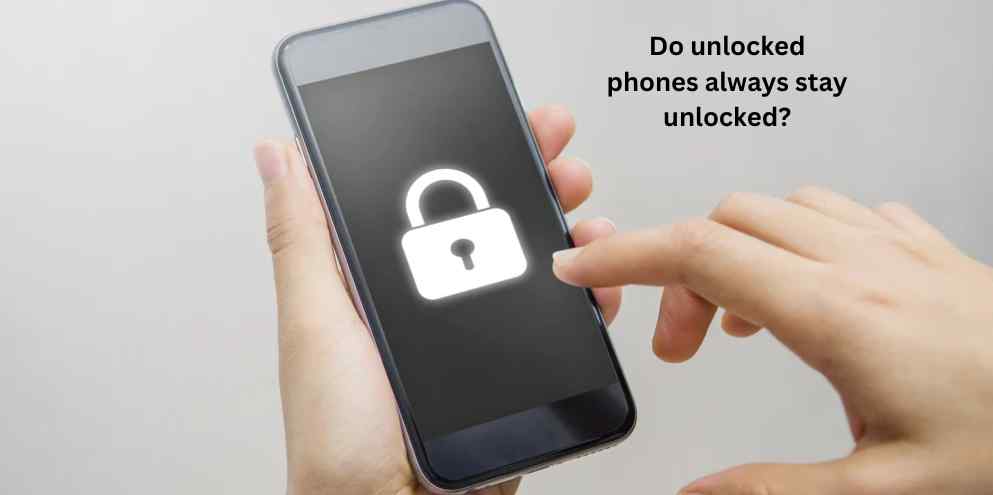
Carriers would lock the phone you purchased from them using their software. A phone you buy from a mobile carrier would remain tied to that carrier for 24 months.
During this period, you have to continue making partial payments towards the cost of the phone.
Buying a carrier-locked device comes with a couple of advantages. Firstly, you’ll buy it at a discounted price, and the mobile operator will lower the device’s selling price to entice you to stick with them.
Additionally, the mobile carrier often bundles your monthly subscription rate to meet the cost of the locked device.
Cellular networks often lock new devices as a security precaution, unlike unlocked phones, which can’t be traced when stolen.
However, with many mobile phone sellers in the market, buyers prefer unlocked phones to switch to their favorite service provider. Most consumers in the US prefer unlocked devices because they give them the flexibility they want.
Today, you can use your device with a mobile carrier. Different mobile phone operators offer various plans and rates within their coverage areas.
Another advantage of an unlocked phone is that you can resell it at a higher price. You can use your unlocked device to work with a compatible foreign mobile carrier network when you travel abroad. It also allows you to make calls and pay locally instead of paying costly roaming charges.
Travelers often consider using unlocked smartphones over carrier-locked ones. If you like to upgrade your device frequently, an unlocked phone would be better. So the best-unlocked phone you can buy should let you switch to any wireless carrier.
Can A Carrier Lock An Unlocked Phone?
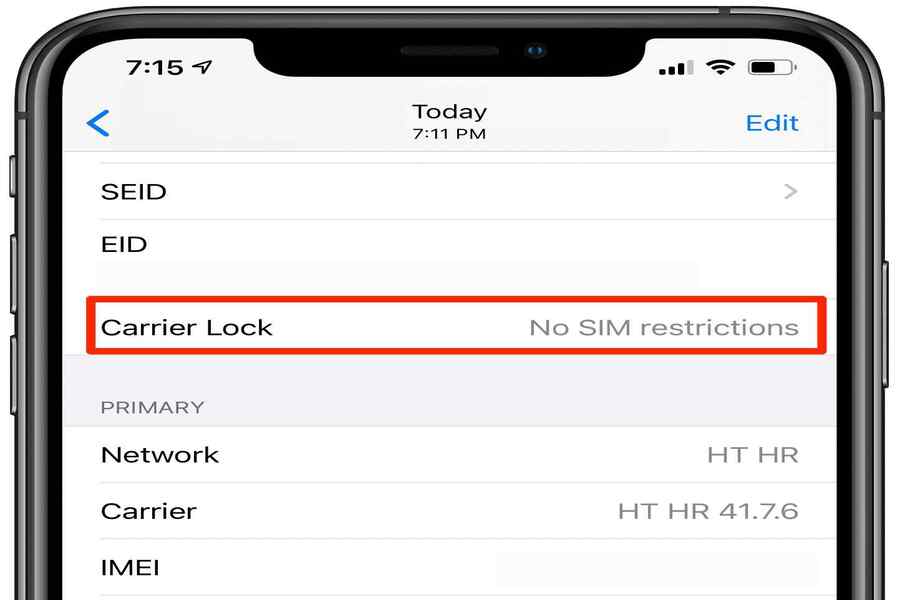
If you purchase a locked smartphone or unlock it yourself, a wireless carrier won’t be able to close it after that.
It means you can use your device on more networks. While it is not easy to unlock a carrier-locked phone,
Here are some factors you need to consider before attempting to unlock your phone:
- Have you paid off the total cost of your phone’s stated price? If so, you may request a phone unlock from your carrier.
- Your wireless carrier may not unlock your device if you still have outstanding bills.
- Even if you succeed in unlocking your phone, it may not function on other mobile phone carriers. Your locked telephone may not have the right built-in receptors to enable it to work on multiple networks.
In the US, the law disallows the unlocking of carrier-locked phones without their consent. In this regard, you shouldn’t pay anyone who promises to hack the carrier’s locking code.
Carriers such as Verizon, AT&T, T-Mobile, and others provide the unlocking code to their subscribers once they fulfill specific terms.
To combat fraud, some US-leading carrier providers lock all prepaid and postpaid phones for two months. After that, the carrier will automatically remove the lock and won’t close it again.
T-Mobile and AT&T are two GSM carriers in the US. While T-Mobile unlocks your device if you have an active account, AT&T will do so upon request.
T-Mobile also requires that your Unlocked Phone account be in good standing for 40 days. Most mobile phone operators in the US will unlock contract iPhones as long as your account is in good standing.
However, this requirement doesn’t apply to US service members working abroad, even if their devices are still under contract.
Can You Put Any SIM Cards Into An Unlocked Phone?
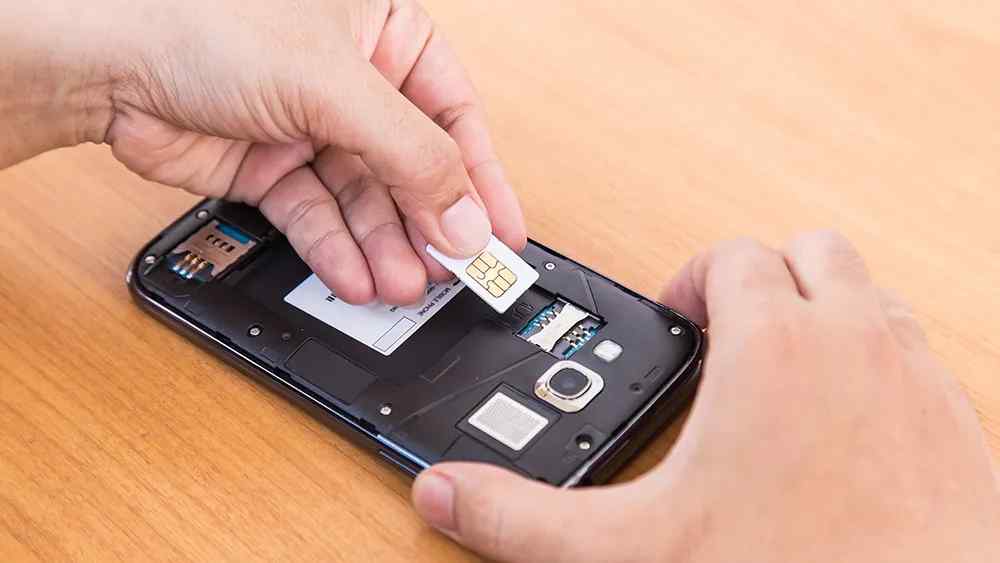
An unlocked phone is not subject to the conditions of a particular wireless network, meaning you can use it with a carrier of your choice.
Also, you can choose to buy a phone from your favorite brand. Plus, carrier-locked devices come pre-loaded with carrier-specific apps. These apps often occupy much of your phone’s storage.
You can use international SIM cards to connect to local networks when abroad. Most wireless mobile phone operators provide instructions on how to swap SIM cards.
Many smartphones are compatible with CDMA and GSM networks. Examples of these are LTE-based devices such as Androids and iPhones.
Installing a SIM card is not easy if your device is not locked. Unlocked Phone Use your SIM card from any cellular network to install your device, regardless of the brand. Alternatively, you can backup your contacts and data to Gmail.
Once the transfer is over, transfer the SIM card to the new device. After that, set up your new device to sync with the carrier data on your SIM card.
Remember to check your device with a few test calls to ascertain that your SIM card is active and works successfully. Check the strength of the network connectivity to see if it is reliable.
By entering a code that your cellular operator has sent to your handset, you can unlock it. Other options involve running built-in software on your device or from a linked PC. The PC can connect to your handset through a USB cable.
Once you unlock your device, it remains locked thereafter. If your handset is locked, you will receive notifications such as “Enter lock PIN” or “SIM network PIN.”
Cellular network operators can also impose multi-level blocks that inhibit other SIMs.
Is It Recommended To Buy An Unlocked Phone?
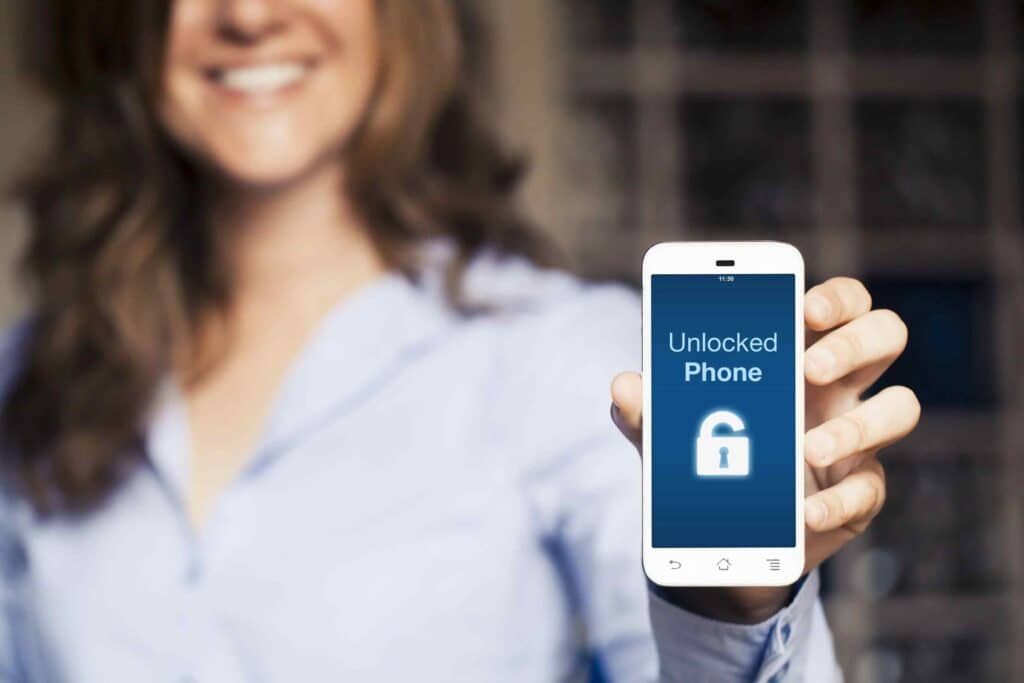
It is okay to purchase an unlocked handset because its advantages outweigh its disadvantages.
Whether you need a locked or an unlocked device depends on your circumstances. Try weighing their pros and cons to enable you to make an informed buying choice.
With an unlocked handset, you can avoid phone lock on a carrier’s elevated plan. Even though you enjoy discounted rates, you will still pay more at the end of your subscription.
Owning a phone that’s not locked allows you to switch between operators. You may add or reject services according to your needs.
Free handsets don’t come with long-term contracts and have no data restrictions.
Conclusion
The tough competition among cellular carrier networks has led to notable advances in cell phone designs.
One way to have an unlocked handset without proprietary encryption is to purchase it from independent vendors.
Your role is only to verify that it is in its original unlocked state. The only drawback is that you’ll get it for almost 60% of the retail cost. If you are keen on upgrading your device later, you should go for an unlocked phone.
Given the number of cellular operators, it is sometimes difficult to choose the right one. Each will tempt you with exaggerated offers from trending cell phone brands.
Once you purchase a handset from an operator, you are subject to their policies. So take your time before you choose a plan with any carrier network.
